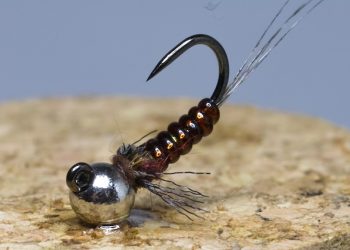Composed by: Costs Cairns

[Editor’s note: Reader Jeffrey Harris sent in the text below, along with this note: “Bill Cairns’s thoughts on stream etiquette bear repeating from time to time. Here’s my retyped version from my tattered copy he gave me 20 years ago. I hope you’ll share it with your readers and Orvis customers.” We wrote about Bill when he passed away in 2013. Thanks to Mr. Harris for this great reminder of Bill’s legacy. This is still good advice.]
It utilized to be that a lot of brand-new anglers were slowly presented to the sport of fly fishing by a relative or good friend who had a fishing background, and numerous guidelines of habits would be gotten gradually and complied with as a matter of course. Nowadays, we invite lots of adult newbies to the sport without any custom to depend on for assistance so streamside misconception can quickly occur.
The guidelines of streamside habits are couple of and quickly observed. Mainly they focus on good sense, courtesy, and factor to consider of others sharing the stream.
- An area of water comes from the very first angler fishing it. It is inconsiderate to crowd him and simply how close a technique is allowable is an apparent variable.
- A slow-moving or fixed angler has every right to stay simply where he is. If you are moving, leave the water and walk him, being specific not to disrupt his fishing or the water he may be working. In a comparable vein, an angler might be resting a swimming pool or preparing his next relocation. It is still his water, and you ought to not leap in without his approval.
- An angler operating in an upstream instructions has the access over somebody coming downstream. Wading upstream versus the present forces you to move gradually, cover less water, and you are approaching the fish from behind. The angler operating in a downstream instructions covers more water, faster, and has the prospective to disrupt more water. For example, negligent wading might send out silt or particles cleaning downstream to alarm fish that another person is working over.
- Numerous streams circulation through personal property. Acknowledge that gain access to is a benefit, not a right. Regard personal property. If uncertain about gain access to, ask the landowner pleasantly. On farm homes: do not run over crops, disrupt animals, or leave gates open.
- Leave no litter at streamside. In reality, get in the routine of getting disposed of monofilament, cans and other garbage, bring them out to be disposed of correctly.
- Acknowledge that experienced anglers and/or heavy fishing pressure with exceedingly liberal limitations can significantly decrease the offered fish populations in any stream area unless voluntary restraint is practiced. A legal limitation is not a quota. Let your fishing slogan be: “Limitation your kill; do not eliminate your limitation.” Orvis motivates the catch-and-release viewpoint of fishing, permitting fish to develop, recreate, and live to challenge other anglers in the future.
- Several leisure usage of streams prevails. We might share the resource with tubes and canoes. It is the obligation of the canoer to acknowledge that the angler has actually developed a position before the canoe drifted into view. The canoer ought to attempt to pass behind the angler. If area does not allow this, the canoer ought to drift by silently and with minimum disruption.
In summary, act on stream towards other anglers as you would like them to act towards you … and welcome to the world of fly fishing.
Costs Cairns is a legend in fly fishing. He was a fly fishing instructor, ambassador, historian, rod home builder, fly tier, and among the very best casters ever. He established the very first fly fishing school in 1966 at the Orvis Business. The fly fishing world lost a real gentleman in 2013 when Costs was 81 years of ages.





